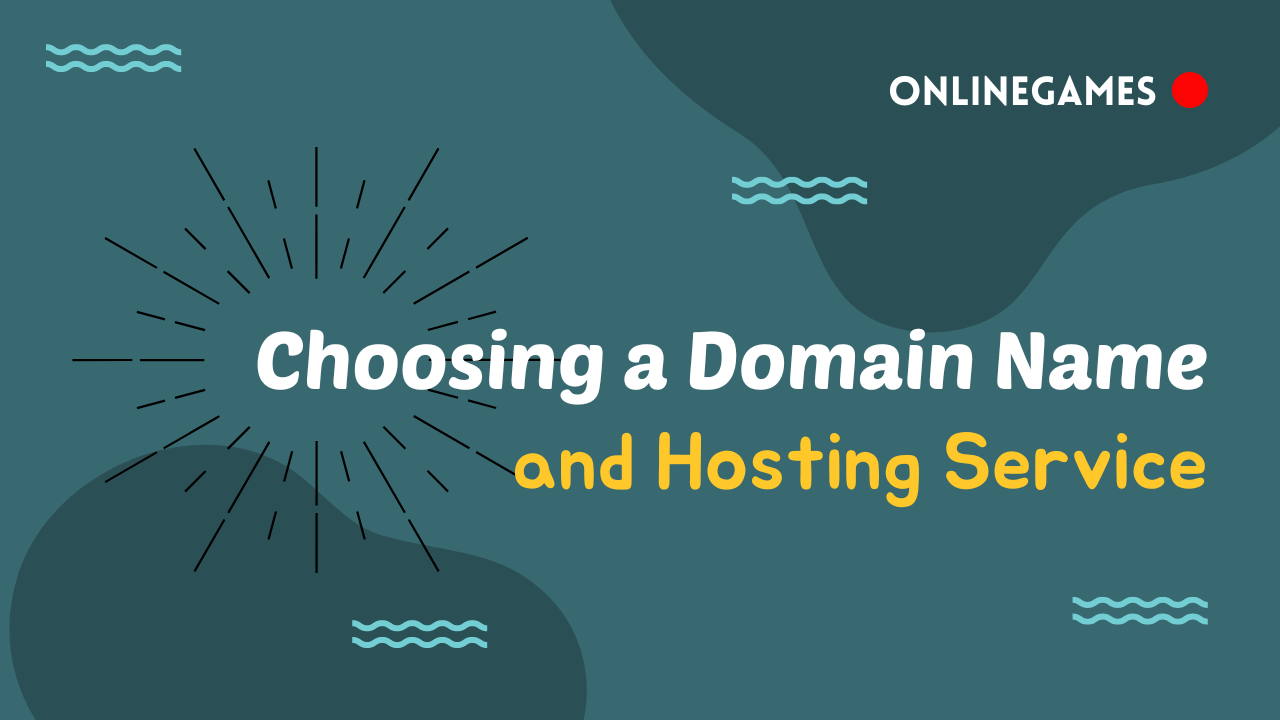Choosing the right domain name and hosting service is a critical step in establishing your online presence. Whether you’re creating a website for a business, blog, portfolio, or e-commerce store, selecting a domain name that reflects your brand and reliable hosting that supports your needs is essential. Here’s a comprehensive guide to help you make informed decisions:
Choosing a Domain Name
Brand Identity and Relevance
Your domain name is your online identity, so it should reflect your brand identity and be relevant to your niche or industry. Consider using your business name, a relevant keyword, or a catchy phrase that resonates with your audience.
Tips for Choosing a Domain Name:
- Keep it concise and memorable: Shorter domain names are easier to remember and type.
- Use keywords: Incorporate relevant keywords that describe your business or offerings.
- Avoid hyphens and numbers: They can be confusing and difficult to remember.
- Choose the right domain extension: .com is the most popular and widely recognized, but consider other extensions (.net, .org, .co) if .com is unavailable.
Check Availability and Trademark Issues
Before finalizing your domain name, check its availability using domain registration services like GoDaddy, Namecheap, or Google Domains. Ensure there are no trademark conflicts and that the name is not already in use by another entity to avoid legal issues.
Selecting a Hosting Service
Types of Hosting Services
Shared Hosting
Shared hosting is cost-effective and suitable for small to medium-sized websites. Your website shares server resources with other websites, making it economical but potentially slower during peak traffic periods.
Virtual Private Server (VPS) Hosting
VPS hosting provides more control and dedicated resources compared to shared hosting. It’s ideal for growing websites that need enhanced performance and scalability.
Dedicated Server Hosting
Dedicated server hosting offers maximum control and resources as you have an entire server dedicated to your website. It’s suitable for large-scale websites with high traffic volumes or specific security requirements.
Cloud Hosting
Cloud hosting utilizes multiple servers working together, providing scalability, flexibility, and reliability. It’s suitable for websites that experience fluctuating traffic or require high uptime guarantees.
Factors to Consider When Choosing Hosting:
- Performance: Evaluate server uptime, speed, and reliability guarantees.
- Scalability: Ensure the hosting service can accommodate your future growth needs.
- Support: Look for 24/7 customer support with quick response times.
- Security: Check for robust security measures, SSL certificates, and backup options.
- Cost: Compare pricing plans and consider any additional features or services included.
Setting Up Your Domain and Hosting
Registering Your Domain
Once you’ve chosen a domain name, proceed to register it through your chosen domain registrar. Follow the prompts to complete registration, providing accurate contact information and selecting a registration period (typically 1-2 years).
Configuring Hosting
After registering your domain, select a hosting plan that meets your requirements (shared, VPS, etc.). Follow the hosting provider’s instructions to link your domain with your hosting account. This typically involves updating DNS settings or nameservers provided by your hosting service.
Choosing a domain name and hosting service is a crucial first step in establishing your online presence. By selecting a domain name that reflects your brand and choosing a reliable hosting service that meets your website’s needs for performance, scalability, and security, you set a solid foundation for success in the digital world.










